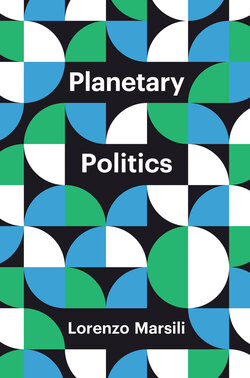Читать книгу Planetary Politics - Lorenzo Marsili - Страница 7
1 The twilight of universal Europe
ОглавлениеThe Avenida Central of Rio de Janeiro was built in 1904, following the latest European fashion: stone façades, domes and belle époque iron railings adorned a triumph of modernity. Photographers have left ample documentation of the elegant European architecture and of the people who frequented the street. Women are seen wearing outsized skirts and carrying black umbrellas, while men dress in dark tuxedos and top hats. We are at the equator: the temperature skyrockets and humidity causes the skin to sweat. These are not the right clothes to wear. But all climatic considerations are secondary, because il faut être absolument moderne. And being modern means disregarding distances, weather, and local customs, and thinking and acting as if we had all just left a café-concert on a Parisian boulevard.
It was in Brazil, in the hilltop village of Petrópolis, that Stefan Zweig took his own life in 1942. In his suicide note the great Austrian writer lamented the destruction of his ‘spiritual home’ – and, faced with the suicide of Europe, he committed his own. A continent in ruins lay on the other side of the ocean; a continent so dramatically different from the belle époque the planners of Avenida Central were out to imitate and so unlike that universal Europe that Zweig celebrated in 1916, in the middle of the First World War, with the following words of longing:
Thus it grew, the new Tower of Babel, and never had its summit reached so high as in our epoch. Never had nations had such ease of access to the spirits of their neighbours, never had their knowledge been so intimately linked, never had commercial relations been so close in forming a formidable network and never had Europeans loved both their homeland and the rest of the world . . . The monument was growing, the whole of humanity counted on assembling there for the consecration and music resounded around the edifice like a gathering storm.1
Here is all the inebriation of universalism that captured a European elite that had united the world in a single political, economic and cultural network. With a rhetoric that much recalls the apex of another and more recent phase of globalisation, the early twentieth century introduced the lexicon of the end of borders, of the overcoming of distances and of the political and economic interdependence of nations. Industry developed integrated supply chains on a global scale, trade and finance crossed every frontier, while telegraph lines, railways and steam ships connected the world, allowing the transmission of ideas, aspirations and fashions on a planetary scale as never before. Europe, with porous internal borders that could still be crossed without a passport, was swept by common political, artistic and cultural currents. The bourgeoisie of Buenos Aires adopted the latest Parisian vogue well before this reached the sleepy towns of the French countryside. And while four-fifths of the earth were under the control of a handful of Western powers, every corner of the world had its own Avenida Central.
Liberal capitalism and free trade embraced the globe, with an impenetrable and apparently indestructible web that gave rise to a thriving literature on European unity and world government. This was not, surely, a democratic and egalitarian universality. British supremacy stood as a guarantee of the stability of the system, a Janus-faced power that maintained order with the double gaze of its gunboats and its financial capital. A handful of European metropolises decided the fate of the world, while a large part of humanity experienced the squalor and crime of colonialism. The shadow of European domination and the global projection of its economy and trade transformed the life of every inhabitant, in every country, on every continent. From the Ottoman to the Persian Empire, from India to Japan, the whole world had to respond to and was transformed by the developments in one of its parts. It was something extraordinarily new.
Indeed, even in the colonised world, the other side of the coin of European sovereignty, a new feeling of transnational solidarity between oppressed peoples began to develop. When Japan annihilated the Russian fleet at Tsushima and defeated the Russian Empire in 1905 – marking the first victory of an Asian people against a European power – Turkish, Persian, Egyptian, Chinese and Vietnamese newspapers celebrated. Sixteen-year-old Jawaharlal Nehru, future Indian Prime Minister; Sun Yat-sen, the future leader of the Republic of China; Mustafa Kemal, who under the name Atatürk would become the father of modern Turkey; all cheered in unison. The Turkish writer Halide Edip named her son Tōgō in honour of the Japanese admiral who secured victory, while the future Indian Nobel laurate Rabindranāth Tagore improvised a triumphal march with his students in a small school of rural Bengal.2
The upheaval was total. ‘A new model of life’, wrote the economist Karl Polanyi, ‘unfolds on the world with a universal aspiration without parallels from the time when Christianity began its history.’3
